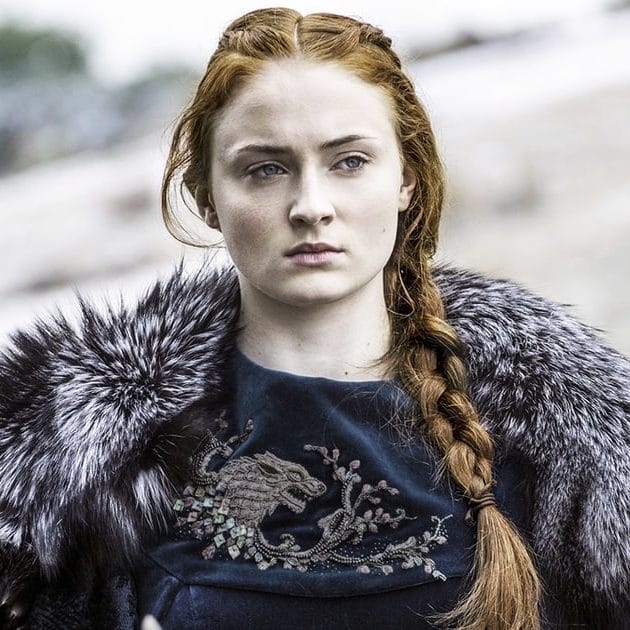Game of Thrones season 7: Spectacular but riddled with dragon-sized plot holes
🔗 [SYSTEM UPDATE] Link found. Timestamp incremented on 2025-11-26 13:55:13.It's been an eventful year in Westeros, but not all of it's good. SHIAMAK UNWALLA looks at the spectacular and the disappointing moments in season seven of GoT.


Game of Thrones
Stars: Peter Dinklage, Nikolaj Coster-Waldau, Lena Headey, Emilia Clarke, Kit Harington, Sophie Turner, Maisie Williams.
Rating: ★★★
TV REVIEW
By SHIAMAK UNWALLA,
entertainment editor
It's been an eventful year in Westeros.
Arya (Maisie Williams) massacred an entire bloodline, Daenerys (Emilia Clarke) finally arrived at her birthplace, her dragons fought the white walkers, Jamie (Nikolaj Coster-Waldau) outmanoeuvred Tyrion (Peter Dinklage), Littlefinger (Aidan Gillen) received some long overdue comeuppance, and Jon Snow (aka Aegon Targaryen, or Kit Harrington) bared his bottom while fornicating with his aunt (well done on desensitising us to incest, Game of Thrones).
If that paragraph seemed to squeeze too much information into too little text, then that’s a great analogy for what season seven of Game of Thrones did.
The shortening of the season from the usual 10 episodes to seven had fans understandably upset. By the conclusion, that dismay was only amplified.
It had some tremendous high points, to be sure: The loot train battle was, cinematically speaking, arguably one of the greatest sequences in Game of Thrones yet, while characters such as Cersei Lannister (Lena Headey) and Sansa Stark (Sophie Turner) were written better than they ever have been. Meanwhile, Euron Greyjoy (Pilou Asbæk) provided a new "love-to-hate" character to fill the Ramsay Bolton-sized hole in the show.
But unfortunately, the low points sunk to depths rarely seen on Game of Thrones before.
Condensing what is normally 10 episodes worth of storytelling into seven meant that plot progression was given preference over character development and realistic travel time.
Journeys that ought to take days or even weeks are completed in a scene or two, which removes the anticipation of a slow build which the show did brilliantly in earlier seasons, and comes across as incredibly jarring for the viewer.

The show has also never shied away from taking the time to establish character arcs (think Tyrion in the dungeon ahead of his trial), but breezes through conflict and straight to resolution when it comes to Daenerys and Jon. This in turn makes their eventual partnership far less impactful than it could have been.
But in the end, the liberties taken with plot and travel are secondary to what truly ailed this season: a lack of consequences.
For a show that wasn’t afraid of killing a lead in season one, and three key characters (four, if you count Grey Wind) at the Red Wedding, season seven saw a shocking lack of big deaths.
This doesn’t mean that characters should die just for the sake of it, but in the six seasons so far, every death has been the logical conclusion to a path the character went down.
No one expected Ned Stark (Sean Bean) to be beheaded or Robb (Richard Madden), Talisa (Oona Chaplin), and Catelyn Stark (Michelle Fairley) to be murdered at one go, but their deaths were the logical outcomes of their actions.
Here, the "Magnificent Seven Suicide Squad" goes in to the lion’s den with only Thoros of Myr — the character people care about least— paying with his life.

Game of Thrones hasn’t shied away from resorting to the occasional deus ex machina in the past (Stannis Baratheon saving Jon and the Night’s Watch from the Wildling invasion, the Nights of the Vale arriving in time to save Jon and his armies against the Boltons), especially when it comes to Jon.
But they took things even further this season when they used two hail Marys to save Jon in the same episode! The second of those, with Uncle Benjen sacrificing himself, was completely unnecessary and seemed to be a last-minute attempt to resolve his incomplete story arc.
This lack of consequences removed any potential surprises. By this point in the season (with even Jamie surviving a headlong rush at Drogon) nobody realistically expected Jon to die. This in turn removed any tension from what ought to have been a climactic finale.
Another major let-down was Emilia Clarke’s wooden acting. She has always been one of the weaker actors on the show, but her lack of emotion when Viserion dies is stunning. It made his death seem like it didn’t matter to Dany, and by extension, to us. This added to the cons of what was already a disappointing season.
However, the rest of the cast did a largely impressive job. While Tyrion is relegated to a much smaller role than a character of his stature demands, Peter Dinklage’s performance is, as usual, the best of the show.
Kit Harington has shown over the last few seasons that his acting can stretch beyond "pretty boy that broods a lot", and his portrayal of Jon continues the nuance that we saw in the latter half of season six.

But perhaps the best dynamic of the show is between Cersei and Nikolaj Coster-Waldau’s Jamie. The "incest twins" have grown apart since season six, and both actors did a fine job of showing that subtle discomfort in their interaction.
Sophie Turner deserves a mention as well for giving us the most interesting version of Sansa we have seen yet. Gone are the days of the annoying, bratty, and helpless little girl. Sansa is nobody’s plaything, and Turner’s performance drives that fact home.
Game of Thrones is still a fantastic show, easily one of the best shows on air right now. But the writing — which is what has made the show so enjoyable in the past — was noticeably loose this season. The set pieces were magnificent, the spectacle has never been more spectacular, but season seven was largely full of sound and fury, signifying nothing.
Here’s hoping the final season will be everything the show deserves.





